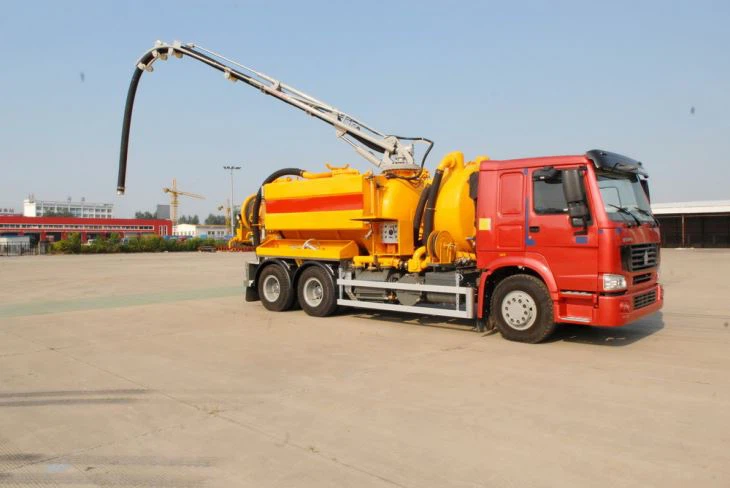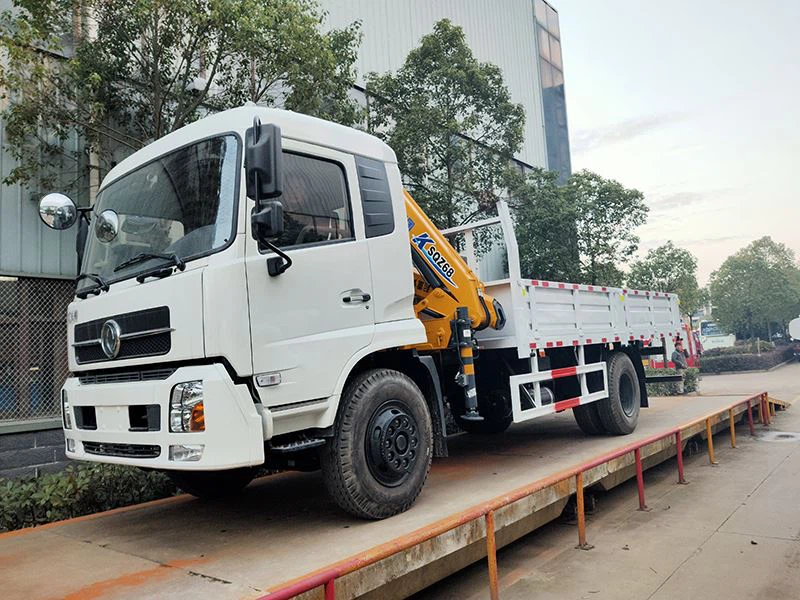Understanding the Galbreath Hooklift: A Comprehensive Guide

The Galbreath hooklift is a pivotal innovation in waste management and transportation technology. Designed for efficiency and versatility, hooklifts provide businesses with unique advantages in loading and unloading containers quickly and safely. In this extensive article, we will delve into the Galbreath hooklift’s features, benefits, and applications, among other vital aspects. By the end, readers will gain a comprehensive understanding of how hooklifts function and their importance across various industries.
What is a Galbreath Hooklift?
The Galbreath hooklift is a hydraulic system installed on trucks that allows for the easy loading, transport, and unloading of containers. Utilizing a hook mechanism, it can lift and lower containers with precision. This technology is particularly beneficial in waste collection, construction sites, and recycling programs.
How Hooklifts Work
A hooklift system comprises several key components:
- Hook Arm: The primary lifting mechanism, responsible for connecting to the container.
- Hydraulic System: Powers the lifting and lowering of the hook.
- Control System: Operator-controlled mechanism that manages lifting operations.
- Mounting Platform: The truck frame where the hooklift system is mounted.
Key Components of the Galbreath Hooklift
| Component | Description |
|---|---|
| Hook | Engages with the container for lifting. |
| Hydraulic Cylinder | Controls the motion of the hooklift. |
| Pumper Unit | Supplies hydraulic fluid under pressure. |
| Control Panel | Allows the operator to control the hooklift system. |
Benefits of Using a Galbreath Hooklift
There are numerous advantages to employing a Galbreath hooklift system:
1. Increased Efficiency
Hooklifts can load and unload containers faster than traditional methods. This increased efficiency can boost operational productivity.
2. Versatility
The Galbreath hooklift is not limited to specific container sizes or types. It can handle various materials, from heavy construction debris to recyclable materials.
3. Safety Features
With built-in safety mechanisms, including limit switches and emergency stops, the Galbreath system minimizes the risk of accidents during operation.
4. Reduced Labor Costs
Automating the loading and unloading process can significantly decrease the number of personnel required for these tasks, leading to lower labor costs.
5. Improved Maneuverability
Hooklifts are designed to operate in tight spaces, making them ideal for urban waste collection and construction sites.
Applications of Galbreath Hooklifts
While widely associated with waste management, Galbreath hooklifts serve various industries:
1. Waste Management
Municipalities employ hooklifts for efficient waste disposal and recycling. They facilitate quick container swaps without requiring extra equipment.
2. Construction

On construction sites, hooklifts offer an efficient solution for transporting materials, ensuring that operations continue smoothly and without delays.
3. Landscaping
Landscaping companies utilize hooklifts to transport soil, mulch, and other materials, allowing for rapid project completion.
4. Agriculture
Farmers can use hooklifts to move feed, fertilizer, and equipment across large properties, adding to their operational efficiency.
5. Recycling
With increasing environmental concerns, hooklifts play a crucial role in recycling programs by easily managing various recyclable materials.
Choosing the Right Galbreath Hooklift
Selecting the appropriate Galbreath hooklift requires considering several factors:
1. Load Capacity
Assess the maximum weight of the containers you intend to transport. Galbreath hooklifts come in different load capacities, catering to specific needs.
2. Container Types
Consider the types of containers (open-top, enclosed, etc.) you will frequently use. Some hooklifts are compatible with more container varieties than others.
3. Truck Specifications
Ensure that the hooklift system is compatible with your truck’s specifications. Consult the manufacturer for proper installations.
4. Hydraulic System Power
Choose a hooklift with an appropriate hydraulic power rating to handle the weight successfully.
5. Maintenance Requirements
Consider the maintenance needs for the hooklift. Regular checks and servicing ensure longevity and enhanced performance.
Practical Tips for Using the Galbreath Hooklift
To maximize the efficiency of your Galbreath hooklift, consider the following practical tips:
1. Training
Ensure all operators are adequately trained in using the hooklift system, including safety protocols and emergency procedures.
2. Regular Inspections
Conduct routine inspections and maintenance checks to identify any potential faults. Address these issues promptly to avoid operational downtime.
3. Weight Distribution
Always ensure that loads are evenly distributed in the container to prevent tipping or accidents during transport.
4. Secure Loads
Prevent shifting during transport by adequately securing all loads before activating the hooklift system.
5. Monitor Hydraulic Fluid Levels
Maintain appropriate hydraulic fluid levels to ensure smooth operation. Check levels frequently and refill as necessary.
Cost Analysis of Galbreath Hooklifts

Understanding the costs involved in acquiring and operating a Galbreath hooklift can help businesses make informed decisions:
1. Initial Purchase Cost
The upfront investment varies based on the system’s specifications and capabilities.
2. Maintenance Expenses
Account for ongoing maintenance costs, which typically include inspections, repairs, and fluid replacement.
3. Labor Savings
Consider the reduced labor costs if operations can be streamlined using a hooklift. This reduction can significantly offset the purchase and maintenance expenses over time.
4. Fuel Efficiency
Efficient loading and unloading processes can lead to reduced fuel consumption as trucks make fewer trips.
Common Issues with Galbreath Hooklifts
Like any machinery, Galbreath hooklifts may encounter issues. Here are some common problems and their solutions:
1. Hydraulic System Leakage
Hydraulic fluid leaks can hinder performance. Regular inspections and timely repairs are crucial for maintaining the hydraulic system’s integrity.
2. Uneven Hook Lift
If the hook does not lift evenly, check for debris or damage on the hook or the hydraulic cylinder.
3. Control Panel Malfunctions
If the control panel is unresponsive, check wiring connections and ensure there are no blown fuses.
4. Rust and Corrosion
Regularly inspect the hooklift for signs of rust, especially if operating in wet environments. Protective coatings can extend the life of the equipment.
Frequently Asked Questions (FAQ)
1. What is the average lifespan of a Galbreath hooklift?
The lifespan of a Galbreath hooklift can range from 10 to 20 years, depending on maintenance and usage conditions.
2. Is training required to operate a Galbreath hooklift?
Yes, all operators should undergo training to ensure safe and efficient operation.
3. Can I use a Galbreath hooklift with any truck model?

Galbreath hooklifts are designed for compatibility with specific truck models. Always consult the manufacturer for compatibility checks.
4. Are Galbreath hooklifts suitable for off-road use?
While designed primarily for paved surfaces, certain models can handle limited off-road conditions with caution.
5. What types of containers can I use with a Galbreath hooklift?
Galbreath hooklifts are compatible with a variety of containers, including open-top and closed containers, depending on the model.
6. How do I maintain a Galbreath hooklift?
Regular inspections, hydraulic fluid checks, cleaning, lubrication, and prompt repairs are essential for maintaining a Galbreath hooklift.
